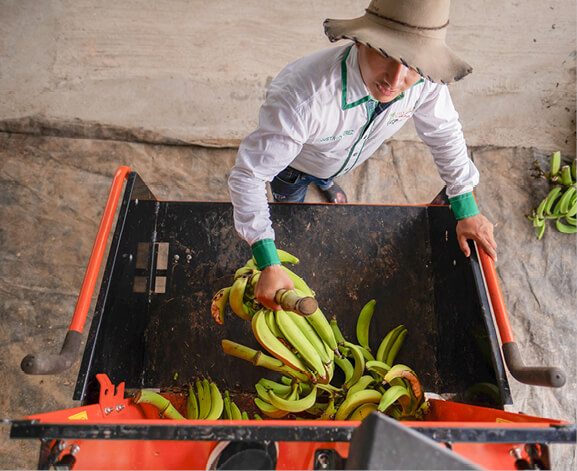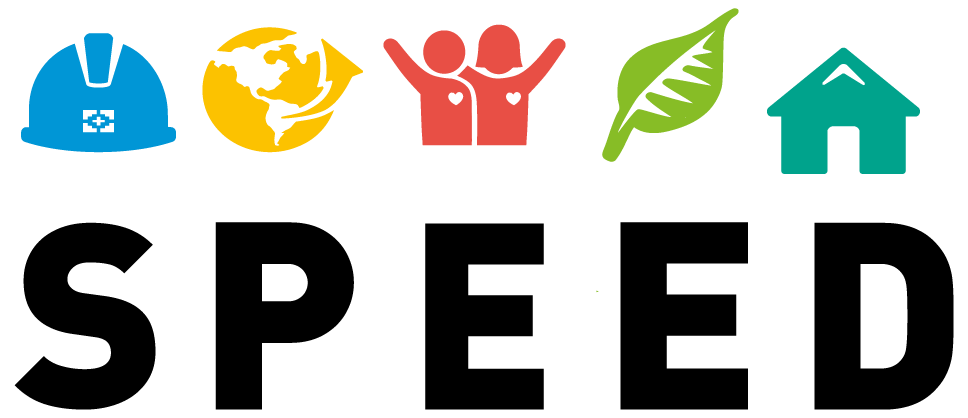(103-1) We promote sustainable development partnerships and the positive transformation of people and the planet. We focus on the execution of programs and projects that reduce gaps in the Sustainable Development Goals (SDGs) in the territories we operate in, recognizing the active role that we have as a socially responsible corporate citizen.
(103-2) Community participation is a key factor in achieving our objectives, and at GeoPark we develop processes for the collective construction of a territorial vision as a planning tool for the social and economic development of the region, integrating the visions of each community.
In our interest to be part of the growth and development of those who have shared their neighborhoods with us for our operations and of the territories we work in, we have identified significant opportunities for the positive transformation of our stakeholders’ realities based on a participative and prospective approach that helps create a joint vision of the territory and prioritize the most-needed projects:

Our social investment in 2020 was concentrated in rural areas of Colombia.
In 2020 we invested
(413-1) SASB: EM-EP-210b.1. IPIECA: SOC-9, SOC-12 and SOC-13
of GeoPark’s operational activities have included information processes and local community participation.
(103-3) It gives us great satisfaction to work with our partners in territories with the objective of being part of the change and transformation in the areas we operate in, in a year that in a context of slowdown challenged us to make a greater impact.
We developed partnerships with public and private players to promote better living conditions and sustainable development. These partnerships come from identifying our stakeholders’ needs and coordinating with organizations with experience and technical knowledge.
In Argentina we have partnered with third parties to promote development programs. In 2020, together with the Student Chapter of the Society of Petroleum Engineers (SPE), Comahue University in Neuquen, the Buenos Aires Technological Institute and the Argentinian Oil and Gas Institute, we created knowledge transfer opportunities directed at technical engineering students, oil industry professionals, representatives of companies that provide specialized services for the oil and energy sector, journalists and communicators. Among the topics we covered in presentations, talks and lectures, cybersecurity management and the presentation of practical case studies based on successful experiences of GeoPark stand out.
We also established partnerships with the Argentine Chamber of Suppliers to the Petro-Energy Industry (Capipe) to participate in the first online 3D oil and energy sector exhibition, and with the Neuquen province Ministry of Education, the Association of Patagonian Neuquen Information Technology Companies, the Siete Lagos Philharmonic Association and Plaza Huincul municipality, with whom we delivered teaching, training and collaboration programs for public health and emergency operations that were implemented as a result of the Covid-19 pandemic.
In Chile we partnered with Alberto Hurtado University to promote female participation in the workforce in Magallanes region, and with the Chilean Army and the University of Magallanes to implement responses to the pandemic. We also joined forces with the Industrial and Artisan Trade Association of Magallanes Region (AGIA) and the Ranchers’ Association of Magallanes to promote exhibitions on topics relevant to productive projects in the region. Following guidelines from Chile’s Ministry of Energy, we carried out seven technology transfer activities to strengthen local business management and knowledge. Finally, we promoted a drawing and culture competition for children from the school at Punta Delgada, a community that neighbors our operations.
In Ecuador we joined forces with Sucumbios Province Decentralized Autonomous Government to develop reforestation activities for the recovery of watersheds.
In Colombia we consolidated partnerships with the Reconciliation Foundation, the Batuta Foundation, the Minuto de Dios Corporation, the National Business Association of Colombia (ANDI) and regional development bank Findeter. With these organizations we carry out projects that help develop the skills of children, adolescents, women, indigenous communities and community leaders. These partnerships contribute to improving housing conditions, road connectivity, community infrastructure, productive projects and protecting biodiversity, among other outcomes.
We also partnered with territorial and national entities to promote programs to meet communities’ expectations regards operations. We have agreements with Mayors’ Offices, the Public Employment Service, the Comfacasanare compensation fund, the National Learning Service (SENA) and chambers of commerce with which work to strengthen the workforce and value chain, and to promote the development of best practices.
In 2020 Colombia’s Territory Renewal Agency (ART) approved the signing of two Works for Tax projects in Putumayo which focus on providing equipment and materials to educational institutions in Puerto Guzman and infant development centers (CDI) of the Colombian Institute of Family Welfare (ICBF) in nine municipalities of the department.

